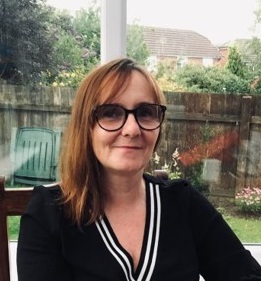Home News & Views Stop, take a breath
Stop, take a breath

Joanne Mohammed, FoNS Inspire Improvement Fellow
When I started my FoNS Inspire Improvement Fellowship in March 2019, one of the first ideas we discussed was the concept of Active Listening; that is, really listening to what is being said; be it patients, staff, relatives, other colleagues etc. Too often in healthcare, and I too have been guilty of this, we don’t always listen fully to what is being said. We think that we have all the answers before we have listened to and gathered the relevant information. Whilst someone is speaking; we are already formulating a plan in our heads. Solution focused, seeking to mend what needs fixing. If there is one thing that I have learnt, it is the importance of taking the time to really listen and understand what someone is telling us.
This idea of listening rather than just hearing, has been brought to the fore for me over the last few weeks illustrated by several situations: A patient’s treatment time that would have been reduced if the nurse had listened to a relative of the elderly lady living with dementia; A staff member commenting on how when she returned to work, the fact that she was ‘really’ listened to on return made it less stressful for her; Listening to the wishes of a palliative care patient meant that a swift discharge home could be planned, despite their wishes not falling in line with what the healthcare professionals felt that they needed; Listening to colleagues’ experiences that led to a focus on personalised patient care when planning transfers.
Stop
Take a breath
Listen
Listen with all your senses
Really listen
Embrace pauses in conversations
Let them speak
Explore the unsaid
Seek to understand
Seek to know the person
Once all has been said
Then, begin to plan
Collaborate
Set aside all assumptions
Walk the path together
Continuing as you walk
To make time to …
Stop
Take a breath
Listen
I wrote this poem as I wanted to explore what it meant for me to listen rather than just ‘hear’ what is being said. How to stop rushing in with plans. Ensuring that we give the right amount of time for people to speak and articulate what they need to say. Being aware of how to actively listen has meant that I have grown more accustomed to feeling comfortable with pauses in a conversation. I am now happy to use them to allow people to think before they speak. To gather their thoughts. Whereas once upon a time I would have been quick to fill the pauses with solutions. I also think and it has been my experience, that we should never assume that we know what someone wants or needs. Let them tell you. This is where the pauses are important.
Finally, listening is not just what is said, it also lies within the unsaid. In order to listen, we need to endeavour to know the person. Not just the here and now; sometimes we need to go beyond the physical conversation and tease out the extra bits of information that we are missing. Once we have all the information, only then do we start to plan, collaborating with the individual, asking for their opinion and checking in with them through the process.
Active listening: one of the most fundamental skills I have acquired and continue to develop in my desire to work in person-centred ways.
Comments are closed.

